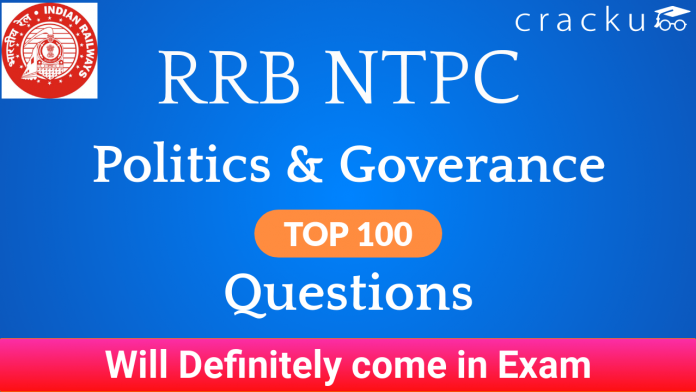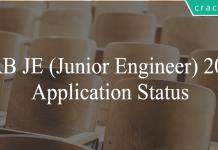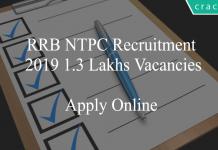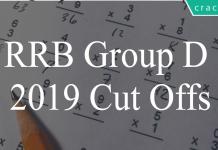Top-100 Expected RRB NTPC Polity and Governance Questions PDF
Download Top-100 Expected Politics and Governance questions and answers for RRB NTPC Stage-1 exam. Go through the video of Repeatedly asked and most important RRB NTPC Politics and Governance questions. These questions are based on previous year questions in Railways and other Govt exams.
Download RRB NTPC Politics and governance Questions
Practice:
Take a free mock test for RRB NTPC
Practice 4500+ Solved Questions for RRB NTPC
Download:
Download RRB NTPC Previous Papers PDF
Download RRB NTPC Study Material PDF
Read this Post in Telugu
Question 1: Which of the following was formerly a fundamental right and now it is only a legal right ?
a) Cultural and Educational right
b) Right to property
c) Right against exploitation
d) Right to freedom and religion
Question 2: How many types of emergencies are there in Indian Constitution ?
a) One
b) Two
c) Three
d) Four
Question 3: Council of Minister is liable to–
a) Lok Sabha
b) Rajya Sabha
c) The Prime Minister
d) President
Question 4: The Montague-chelmsford reform was passed in the year
a) 1908
b) 1918
c) 1919
d) 1916
Question 5: Clement Attlee’s announcement proclaimed ________ in the parliament
a) Limited voting powers to Indians
b) Formation of Cabinet Mission
c) British decision to Quit India
d) None of these
Question 6: Right to Equality of Opportunity in Employment is enshrined in which Article?
a) 17
b) 19
c) 15
d) 16
Question 7: The candidate for the office of the President must have qualification required for the
a) Lok Sabha
b) Member of Parliament
c) Raja Sabha
d) MLA
Question 8: The term of the Governor of a state is
a) 4 years
b) 5 years
c) 6 years
d) None of these
Question 9: The Supreme Court has original Jurisdiction of any dispute/decision between _________ and __________
a) Regarding clarification of constitution
b) About Constitutionality of a legislative act
c) Between government of India and one or more states
d) None of these
Question 10: The kind of economy India has is ___________
a) Socialist
b) Mixed
c) Capitalist
d) Rural
Question 11: National Stock Exchange is located at?
a) Mumbai
b) Kolkata
c) Chennai
d) Delhi
Question 12: How many times Lok Sabha can be summoned in a year ?
a) Two times
b) Four times
c) Six times
d) Three times
RRB NTPC Previous Papers [Download PDF]
RRB NTPC Study Material – 4500+ Questions
Question 13: How many members can Indian President nominate to Rajya Sabha ?
a) 10
b) 11
c) 15
d) 12
Question 14: In which of the following years, there was no Parliamentary Elections ?
a) 1996
b) 1997
c) 1998
d) 1999
Question 15: The language of Union Territory Lakshadweep is
a) Tamil
b) Hindi
c) Malayalam
d) Telugu
Question 16: Which of the following states came into existence on the basis of language ?
a) West Bengal
b) Andhra Pradesh
c) Uttar Pradesh
d) Bihar
Question 17: Who among the following Presidents had been in office continuously for two terms ?
a) Dr. Rajendra Prasad
b) Dr. S. Radhakrishnan
c) Dr. Zakir Hussain
d) None of the above
Question 18: Under which of the following conditions, the President can declare a state or Emergency ?
a) In a state of external invasion or internal disturbance
b) When the rule of laws breaks down in some state
c) Instability in financial condition
d) None of these
Question 19: Who among the following Prime Minister did not face the Parliament during his term of office?
a) Chandrashekhar
b) Atal Bihari Vajpayee
c) Charan Singh
d) B. P. Singh
Question 20: Sitting of Supreme Court take place in New Delhi. Under some unavoidable circumstance, by whose permission can the Chief Justice shift the sitting place elsewhere ?
a) President
b) Parliament
c) On request of Legislative Assembly
d) On decision of majority of judges
Question 21: What age-limit has been fixed for child-artists by the National Children-rights Protection Commission ?
a) 14 years
b) 10 years
c) 18 years
d) 12 years
Question 22: The Chief Central Information Commissioner and Information Commissioners shall be appointed by:
a) By the President of India
b) By the President of India on the recommendation of Prime Minister
c) By the President of India on the recommendation of law minister of the union of India
d) By the President of India on the recommendation of a committee consisting of Prime Minister, leader of opposition and a union cabinet minister nominated by Prime Minister.
Question 23: No citizen shall, on grounds only of religion, race, caste, sex, descent, place of birth, residence or any of them, be ineligible for, or discriminated against in respect of any employment or office under the state. This right is guaranteed by the Constitution of India under:
a) Article 14
b) Article 16
c) Article 19
d) Article 21
Question 24: How many deputy Prime Ministers have been appointed so far in history of free and independent India ?
a) 5
b) 6
c) 7
d) None of these
Question 25: The Council of Ministers of Indian Union is collectively responsible to the:
a) Rajya Sabha
b) Prime Minister
c) President
d) Lok Sabha
Daily Free RRB Online Tests for RRB Exams
Question 26: Who wrote the Communist Manifesto ?
a) Lenin
b) Marx and Engels
c) Stalin
d) None of these
Question 27: How many members are nominated by the President in Lok Sabha in India ?
a) 2
b) 3
c) 4
d) 5
Question 28: India is a secular state because ?
a) it is a socialist country
b) it treats all religions alike
c) there is no religion of the people
d) religous beliefs and practices are discouraged
Question 29: Fundamental Rights are enshrined in the Constitution of India in ?
a) Part I
b) Part III
c) Part IV
d) Part V
Question 30: ’India that is Bharat shall be a union of states” occurs in which of the following Articles of the Indian Constitution ?
a) 8
b) 7
c) 6
d) 1
Question 31: The present salary of the President of the India is ?
a) Rs 50,000
b) Rs 1,00,000
c) Rs 1,50,000
d) Rs 5,00,000
Question 32: The supreme Court judges are appointed by ?
a) Prime Minister
b) President
c) Chief Minister
d) Lok Sabha
Question 33: ‘Indian Community Welfare Fund (ICWF) was set up to help Emigrant Indian National Distress. Which one of the following ministries set up ICWF ?
a) Ministry of Overseas Indian Affairs
b) Ministry of External Affairs
c) Ministry of Environment and Forests
d) Home Ministry
Question 34: The ex-officio Chairman of the Rajya Sabha is ?
a) President
b) Vice-President
c) Prime Minister
d) None of these
Question 35: Which one of the following High Courts has the Territorial Jurisdiction over Andaman and Nicobar Islands ?
a) Andhra Pradesh
b) Kolkata
c) Madras
d) Orissa
RRB NTPC Previous Papers [Download PDF]
Question 36: Who was the first Vice-President of India ?
a) Dr Zakir Hussain
b) Dr.S.Radhakrishnan
c) V.V Giri
d) G.S Pathak
Question 37: Which important human right is protected in Article 21 of the Constitution of India ?
a) Right to Equality
b) Right to Freedom of Religion
c) Right to Freedom of Speech and Expression
d) Right to Life and Liberty
Question 38: The Judge of High Court retire at the age of
a) 60 years
b) 62 years
c) 65 years
d) 70 years
Question 39: The President of India can be impeached by
a) Specially constituted tribunal
b) Supreme Court
c) Central Cabinet
d) Parliament
Question 40: Who administers the oath of office to the President of India ?
a) Vice-President of India
b) Prime Minister of India
c) Speaker of the Lok Sabha
d) Chief Justice of India
Question 41: What is the period of a Fiscal/Financial Year in India ?
a) 1st January to 31st December
b) 1st March to 28th February
c) 1st April to 31st March
d) 1st June to 31st May
Question 42: Which of the following Constitutional Amendments has included fundamental duties into the constitution?
a) 42nd
b) 43rd
c) 44th
d) 39th
Question 43: In case the president of india decides to resign, he will address his letter of registration to-
a) Prime Minister
b) Chief Justice
c) Speaker and Lok Sabha
d) Vice-President
Question 44: Project Tiger was launched in-
a) 1973
b) 1976
c) 1978
d) 1983
Question 45: Which of the following Acts delegated the power of framing laws to the council of the Governor general?
a) Charter Act – 1883
b) Charter Act – 1853
c) The Government of India Act – 1919
d) The Government of India Act – 1935
DOWNLOAD APP FOR RRB FREE MOCKS
Question 46: The post of collector in india was created in:
a) 1772
b) 1779
c) 1792
d) 1882
Question 47: Habeas Corpus means:
a) an order from a court to free a person who has been illegally detained by the police or any other person.
b) an order from a superior court calling up the record of a proceeding in a inferior court for review.
c) an order from the superior court to an official to show his right to the office.
d) an order from the higher court to stop proceeding in a certain case.
Question 48: Mixed economy envisages:
a) co-existance of capitalists and labourers
b) integrated economic development
c) development of agriculture and industry simultaneously
d) private and public sectors
Question 49: How would you describe the Indian constitution?
a) Medium in size
b) Very small and compact
c) One of the most elaborate constitution in the world
d) It is not a written constitution
Question 50: Who is competent to amend the fundamental rights?
a) President
b) Lok Sabha
c) Supreme Court
d) Parliament
Question 51: Who controls/supervises the Consolidated Fund of India?
a) Indian Finance Minister
b) Comptroller and Auditor General of India
c) Parliament
d) None of these
Question 52: In Lok Sabha the number of seats is ________
a) 545
b) 542
c) 549
d) 544
Question 53: Which of the following is not a constitutional arrangement?
a) Finance commission
b) Planning commission
c) Election commission
d) Union Public Service Commission
Question 54: Who is the benefited from inflation:
a) Creditor
b) Debtor
c) Banks
d) Citizens
Question 55: Who among the following economists has done pioneering work on national income?
a) Jagadish Bhagwathi
b) M.L. Seth
c) Amartya Sen
d) V.K.R.V Rao
RRB NTPC Previous Papers [Download PDF]
RRB NTPC Study Material (Download PDF)
Question 56: Who has defined the office of Profit ?
a) Parliament
b) Supreme court
c) Council of ministers
d) Constitution
Question 57: Which article of the Indian Constitution directs the State Government to form a Village Panchayat ?
a) Article 40
b) Article 32
c) Article 48
d) Article 78
Question 58: India 2020 : Vision for the new milliennium” was written by
a) J.N. Dixit
b) Khushwant Singh
c) Ram Chandra Guha
d) A.P.J. Abdul Kalam
Question 59: Who formed “Harijan Sangh” in India?
a) Dr.B.R. Ambedkar
b) Mahatma Gandhi
c) Jyotiba Phule
d) Acharya Vinobha Bhave
Question 60: By which Article of the Indian Constitution was untouchability abolished?
a) Article 14
b) Article 16
c) Article 15
d) Article 17
Question 61: Who is the Prime Minister of Bangladesh ?
a) Habibur Rahman
b) Khaleda Zia
c) Sheikh Hasina Wazed
d) None of these
Question 62: Ordinance issued by Governor is passed by the approval of
a) President
b) State Legislative Council
c) State Legislative Assembly
d) All the above
Question 63: Who was the founder of Praja Samjavadi party ?
a) Jay Prakash Narayan
b) Vinoba Bhave
c) M.N. Roy
d) Morarji Desai
Question 64: Under which article two Anglo Indians are nominated in the House of People ?
a) 331
b) 380
c) 370
d) 80
Question 65: The only president of India who was elected unopposed was?
a) Rajendra Prasad
b) V.V. Giri
c) N. Sanjiva Reddy
d) S.D. Sharma
Question 66: The central council of ministers resign after/on
a) Impeachment
b) Losing Majority
c) Advice of the president
d) Death of a leader
Question 67: Who addresses the joint sitting of parliament ?
a) Prime Minister
b) Speaker
c) Deputy Speaker
d) President
Question 68: The tenure of Rajya Sabha member is
a) 3 Years
b) 4 Years
c) 5 Years
d) 6 Years
Question 69: The final authority with regard to passage of a money bill rests with
a) Lok Sabha
b) Rajya Sabha
c) President
d) Finance Minister
Question 70: The practice of ‘zero hour intervention’ in parliament originated in India in ?
a) 1962
b) 1964
c) 1975
d) 1984
Question 71: Who manages the election of panchayats ?
a) District Collector
b) Chief Minister
c) Justice of High Court
d) None of these
Question 72: What is zero hour ?
a) When the parliament discusses the proposals of the Opposition
b) Time of recess
c) When the parliament discusses important issues
d) None of these
Question 73: The session of parliament is called …… (minimum) in a year
a) Twice
b) Four time
c) Six times
d) Thrice
Question 74: What is the minimum age for election of President of India?
a) 30 years
b) 35 years
c) 40 years
d) 25 years
Question 75: The first general elections free india were held in the year
a) 1947-48
b) 1950-51
c) 1951-52
d) None
Download General Science Notes PDF
Question 76: Who is regarded as the ‘Architect of the Indian Constitution’
a) B.N. Rao
b) Dr.B. Rajendra Prasad
c) B.R. Ambedkar
d) None of these
Question 77: The comptroller and Auditor General (CAG) of India was appointed by
a) President of India
b) Cabinet
c) Prime Minister
d) Parliament
Question 78: Which state of India introduced the common Civil Code for first time?
a) Goa
b) Gujarat
c) Arunachal Pradesh
d) None of these
Question 79: “SWADHAR” is a scheme of Government of India for:
a) Unique identification number
b) Self employment stheme for youth
c) Women in difficult circumstances
d) Old age pension
Question 80: Prohibition of discrimination on grounds of religion, race, caste, sex or place of birth is mentioned in :
a) Article 14
b) Article 15
c) Article 16
d) Article 17
Question 81: Fiscal Deficit is :
a) Total imports and exports of a country
b) Gap between total receipts minus external borrowings
c) The difference between total revenue and total expenditure of the government.
d) None of the above
Daily Free RRB Online Tests for RRB Exams
Question 82: In a Parliamentary form of government, real powers are vested in :
a) President
b) Parliament
c) Judiciary
d) Council of Ministers headed by the Prime Minister
Question 83: The Indian Constitution is regarded as:
a) UnHary
b) Federal
c) Parliamentary
d) Federal in form and Unitary in spirit
Question 84: Sachar Committee is related with :
a) Social, Economic and Educational status of Muslim Community India
b) Social, Economic and Educational status of Scheduled castes in India
c) Social, Economic and Educational status of Scheduled Tribes in India
d) None of the above
Question 85: In the Indian Constitution, the power to issue a Writ of “Habeas Corpus` is vested in :
a) Supreme court only
b) High mu W only
c) Subordinate courts
d) Supreme court and High Court
Question 86: Which part of the Constitution of India refers to the responsibility of the state towards International Peace and Security ?
a) Fundamental Rights
b) Directive Principles
c) Preamble
d) None of the above
Question 87: Who among the following decides whether a Bill is a Money bill ?
a) The Finance Minister
b) The Chairman of the Rajya Sabha
c) The President of India
d) The Speaker of Lok Sabha
Question 88: In which list is ‘Education’ included in India ?
a) Union list
b) State list
c) Concurrent List
d) UGC List
Question 89: Which of the following languages is spoken by highest number of people ?
a) Chinese
b) Spanish
c) Urdu
d) English
Question 90: which of the following is not the reason for the increase in the fiscal deficit of india which is recently estimated?
a) State Government were given extra loans
b) because of kargil war cost
c) revision of pension and pay
d) to not abide by the recommendations of the Disinvestment was at Rs 20000
e) None of these
Question 91: Who is the present prime minister of Israel?
a) Edouard Philippe
b) Saad Hariri
c) KP Sharma Oli
d) Benjamin Netanyahu
Question 92: When was RTI Act conacted India ?
a) $15^{th}$ August 2005
b) $15^{th}$ March 2005
c) $15^{th}$ June 2005
d) $15^{th}$ July 2005
RRB NTPC Previous Papers [Download PDF]
Question 93: Sex-ratio is calculated as
a) No of remales per 1,000 males in a Country
b) No of males per 1,000 females in a Country
c) No of children per 1,000 people in a Country
d) No of people per 1,000 children in a Country
Question 94: Which of the following one of the characteristics of civil services in India ?
a) Neutrality
b) Temporary political
c) Partism
d) All of the given options
Question 95: The Appropriation Act authorities the government to withdraw funds from ______________
a) Contingency fund
b) Public dund
c) Consolidated fund of India
d) None of these
Question 96: The Right to Property was deleted from the list of Fundamental Rights by which of the Amendment of Indian Constitution?
a) $43^{rd}$ Amendment
b) $41^{st}$ Amendment
c) $42^{nd}$ Amendment
d) $44^{th}$ Amendment
Question 97: The first constitutional amendment act in the year 1951 added which articles?
a) Article 15(4) and 19(6)
b) Article 19(1) and 13(2)
c) Article 13 and 55
d) Article 12(a) and 2(c)
Question 98: Panchayati Raj institutions came into existence under the:
a) $42^{nd} and 43^{rd}$ Amendment Acts
b) $86^{th} and 87^{th}$ Amendment Acts
c) $63^{rd} and 64^{th}$ Amendment Acts
d) $73^{rd} and 74^{th}$ Amendment Acts
Question 99: Who has headed the 7th Pay Commission?
a) P.J.Nayak
b) Rangarajan
c) AK Mathur
d) Bimal Jalan
Question 100: Which part of the constitution contains the provision relating to the safeguarding of public property?
a) Preamble
b) Directive principles
c) Fundamental duties
d) Fundamental rights
RRB NTPC Free Study Material – 4500 Questions
Answers & Solutions:
1) Answer (B)
2) Answer (C)
3) Answer (A)
4) Answer (C)
5) Answer (C)
6) Answer (D)
7) Answer (A)
8) Answer (B)
9) Answer (C)
10) Answer (B)
11) Answer (A)
12) Answer (A)
13) Answer (D)
14) Answer (B)
15) Answer (C)
16) Answer (B)
17) Answer (A)
18) Answer (A)
19) Answer (C)
20) Answer (A)
21) Answer (A)
22) Answer (D)
23) Answer (B)
24) Answer (C)
25) Answer (D)
26) Answer (B)
27) Answer (A)
28) Answer (B)
29) Answer (B)
30) Answer (D)
31) Answer (D)
32) Answer (B)
33) Answer (A)
34) Answer (B)
35) Answer (B)
36) Answer (B)
37) Answer (D)
38) Answer (B)
39) Answer (D)
40) Answer (D)
41) Answer (C)
42) Answer (A)
43) Answer (B)
44) Answer (A)
45) Answer (A)
46) Answer (A)
47) Answer (A)
48) Answer (D)
49) Answer (C)
50) Answer (D)
51) Answer (B)
52) Answer (A)
53) Answer (B)
54) Answer (B)
55) Answer (D)
56) Answer (D)
57) Answer (A)
58) Answer (D)
59) Answer (B)
60) Answer (D)
61) Answer (C)
62) Answer (C)
63) Answer (A)
64) Answer (A)
65) Answer (C)
66) Answer (B)
67) Answer (D)
68) Answer (D)
69) Answer (A)
70) Answer (A)
71) Answer (A)
72) Answer (C)
73) Answer (A)
74) Answer (B)
75) Answer (C)
76) Answer (C)
77) Answer (A)
78) Answer (A)
79) Answer (C)
80) Answer (B)
81) Answer (C)
82) Answer (D)
83) Answer (D)
84) Answer (A)
85) Answer (D)
86) Answer (B)
87) Answer (D)
88) Answer (C)
89) Answer (A)
90) Answer (A)
91) Answer (D)
92) Answer (C)
93) Answer (B)
94) Answer (A)
95) Answer (C)
96) Answer (D)
97) Answer (A)
98) Answer (D)
99) Answer (C)
100) Answer (C)
DOWNLOAD APP FOR RRB FREE MOCKS
We hope this very important RRB NTPC Politics & Governce Questions will be very helpful to you.





